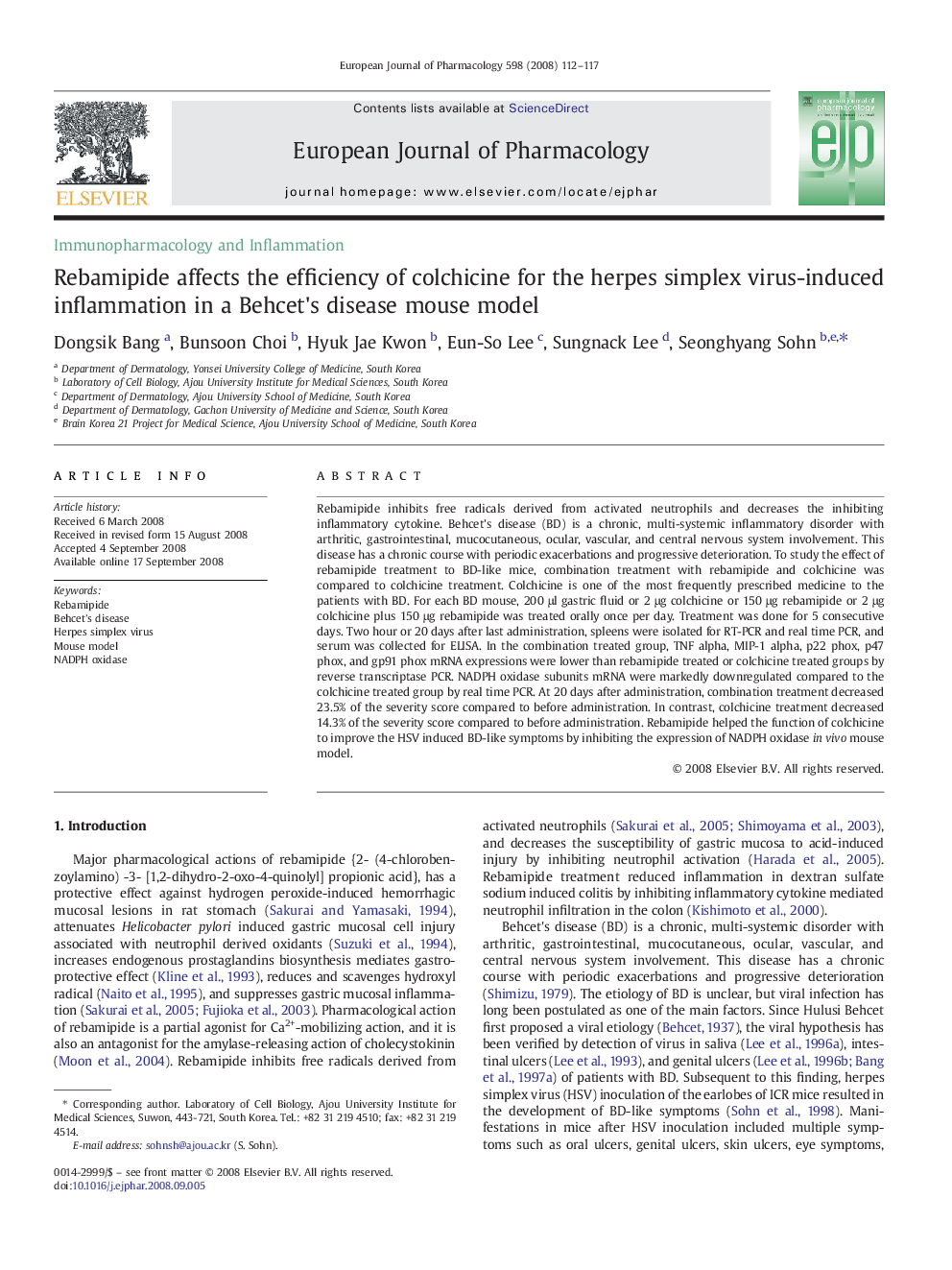| Article ID | Journal | Published Year | Pages | File Type |
|---|---|---|---|---|
| 2534738 | European Journal of Pharmacology | 2008 | 6 Pages |
Rebamipide inhibits free radicals derived from activated neutrophils and decreases the inhibiting inflammatory cytokine. Behcet's disease (BD) is a chronic, multi-systemic inflammatory disorder with arthritic, gastrointestinal, mucocutaneous, ocular, vascular, and central nervous system involvement. This disease has a chronic course with periodic exacerbations and progressive deterioration. To study the effect of rebamipide treatment to BD-like mice, combination treatment with rebamipide and colchicine was compared to colchicine treatment. Colchicine is one of the most frequently prescribed medicine to the patients with BD. For each BD mouse, 200 μl gastric fluid or 2 μg colchicine or 150 μg rebamipide or 2 μg colchicine plus 150 μg rebamipide was treated orally once per day. Treatment was done for 5 consecutive days. Two hour or 20 days after last administration, spleens were isolated for RT-PCR and real time PCR, and serum was collected for ELISA. In the combination treated group, TNF alpha, MIP-1 alpha, p22 phox, p47 phox, and gp91 phox mRNA expressions were lower than rebamipide treated or colchicine treated groups by reverse transcriptase PCR. NADPH oxidase subunits mRNA were markedly downregulated compared to the colchicine treated group by real time PCR. At 20 days after administration, combination treatment decreased 23.5% of the severity score compared to before administration. In contrast, colchicine treatment decreased 14.3% of the severity score compared to before administration. Rebamipide helped the function of colchicine to improve the HSV induced BD-like symptoms by inhibiting the expression of NADPH oxidase in vivo mouse model.
